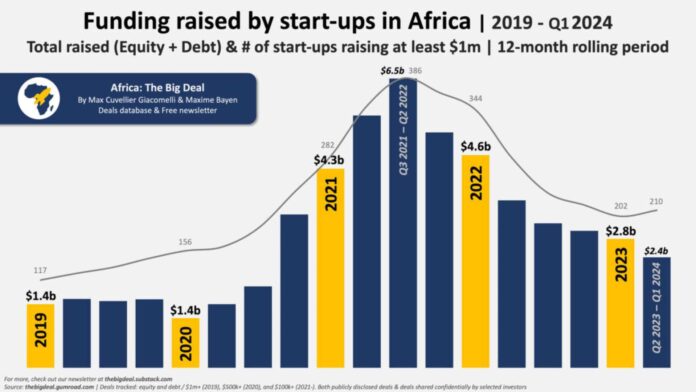Nigeria’s capital expenditure for the first half of 2024 don drop by 25.3 per cent, according to the Central Bank of Nigeria (CBN). The figure now stand at N1.99tn, down from N2.68tn for the same period last year.
The decline happen despite the government dey operate four budgets concurrently. The CBN statistical bulletin show say the government shift spending priorities towards recurrent costs and debt servicing, which dey raise concerns over the long-term impact on economic development.
A month-by-month comparison reveal inconsistent spending patterns in 2024. For example, capital expenditure (CAPEX) start with zero allocation in January 2024, compared to N379.1bn in January 2023. Spending peak in February 2024 with N893.9bn, but still only 36.3 per cent higher than February 2023’s N656.3bn.
In March 2024, CAPEX drop sharply to N258.6bn, reflecting a 65 per cent decline from February 2024 and a 66.1 per cent decrease compared to March 2023’s N763.6bn. April 2024 see capital spending amount to just N42.1bn, marking a 36 per cent drop from the N64.5bn spent in April 2023.
The months of May and June 2024 show some recovery, with CAPEX rising to N478.9bn and N325.4bn, respectively. However, these figures remain below the corresponding months of 2023, when N300bn and N513.3bn were allocated.
The uneven monthly spending reflect growing fiscal constraints as the government grapple with rising debt obligations and recurrent expenditures. Capital expenditure represent about 53.35 per cent of the N3.73tn retained revenue in H1 2024, a drop from the 96.06 per cent share in H1 2023.
Total government expenditure rise by 29.5 per cent from N9.39tn in H1 2023 to N12.17tn in H1 2024, driven largely by recurrent spending. Recurrent expenditure surge by 51.4 per cent, climbing to N10.17tn in H1 2024 from N6.72tn in H1 2023.
Debt servicing also soar by 68.8 per cent, reaching N6.04tn compared to N3.58tn a year earlier. Personnel costs increase by 17.6 per cent to N2.32tn, further squeezing funds available for capital projects.
The widening gap between revenue and expenditure result in a 28 per cent rise in the fiscal deficit, which expand from N6.59tn in H1 2023 to N8.44tn in H1 2024. This growing deficit raise concerns over fiscal sustainability as more resources dey diverted towards debt repayment and administrative costs, leaving less for growth-oriented investments.



